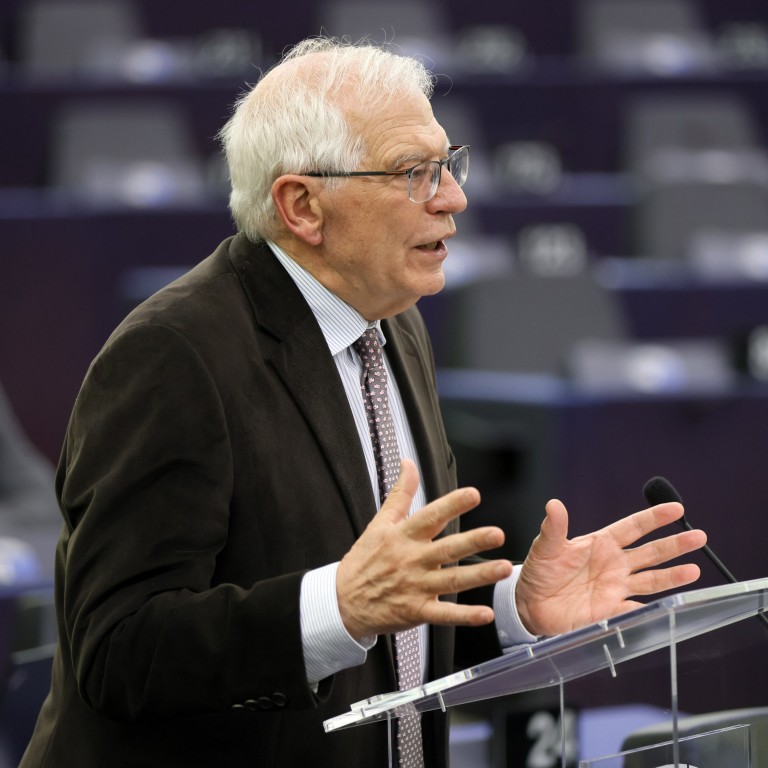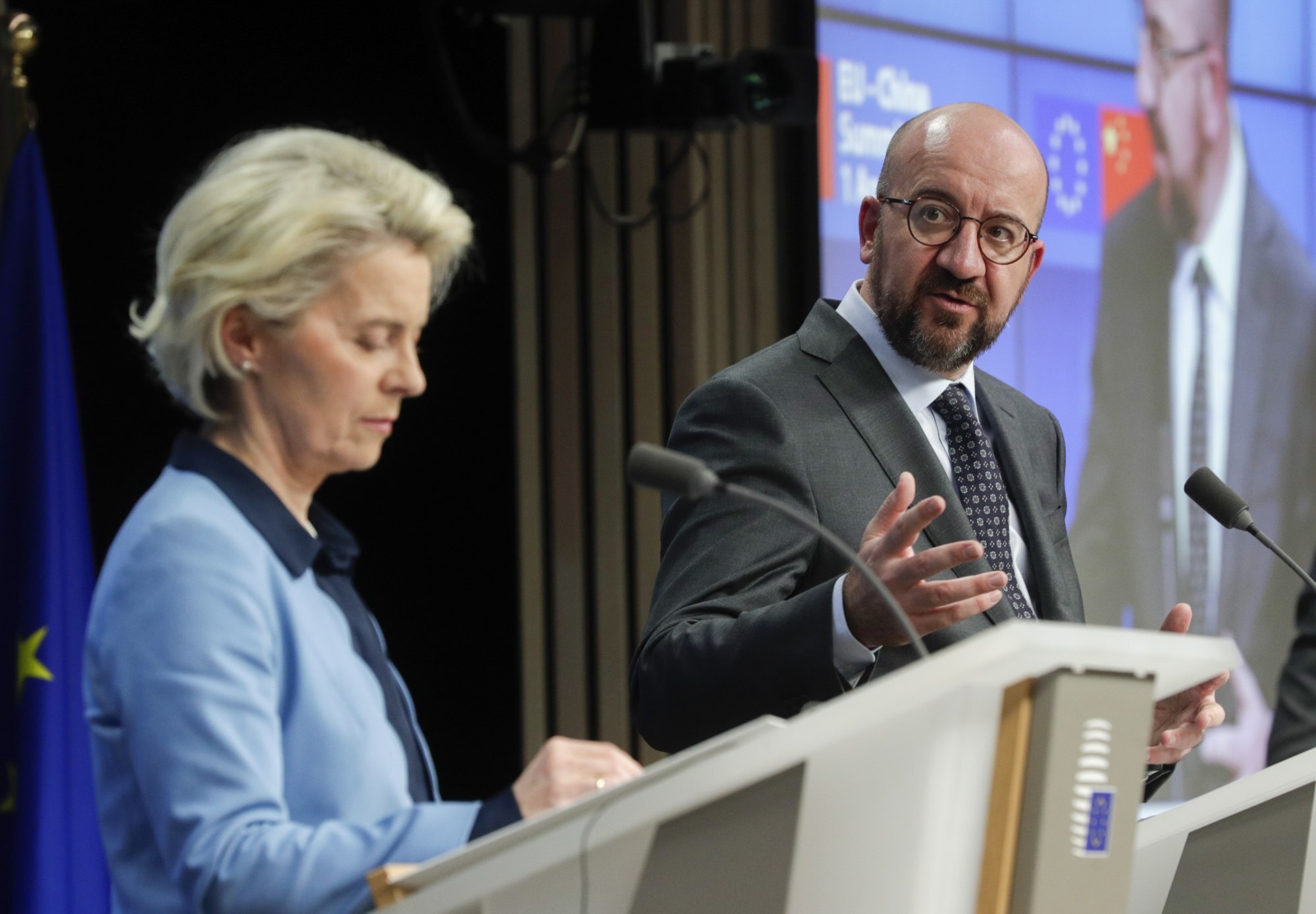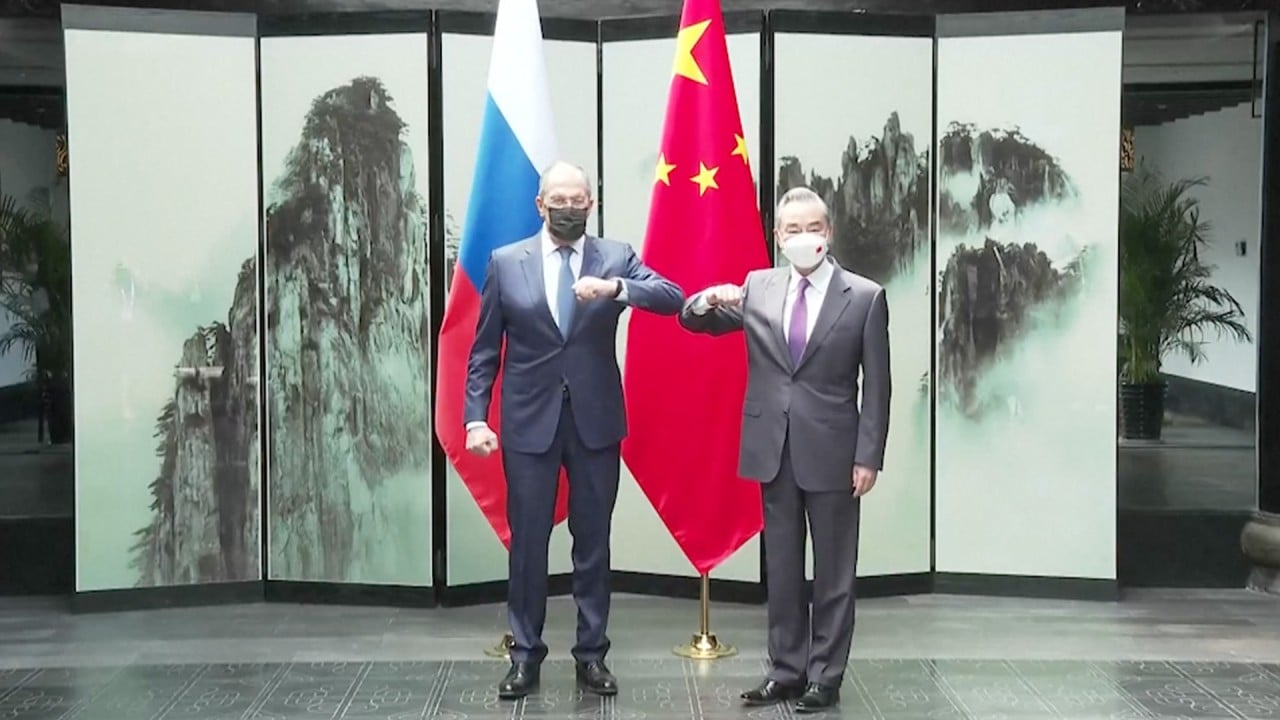
EU-China summit was a ‘dialogue of the deaf’, says top Brussels diplomat
- Josep Borrell tells the European Parliament that Chinese leaders ‘didn’t want to talk about Ukraine’ during Friday’s online summit
- ‘China cannot pretend to be a great power but close its eyes or cover its ears when it comes to a conflict that obviously makes it uncomfortable’
The European Union’s foreign affairs chief Josep Borrell has dismissed last week’s high-profile summit with China as a “dialogue of the deaf”, saying that Chinese leaders “did not want to talk about Ukraine”.
In a stronger than usual rebuke of Beijing by Brussels’ top diplomat, Borrell told the European Parliament on Tuesday evening that Chinese Premier Li Keqiang and President Xi Jinping wanted to “instead focus on the positive things”.
“China wanted to set aside our differences on Ukraine, they didn’t want to talk about Ukraine. They didn’t want to talk about human rights and other stuff and instead focus on positive things,” Borrell said during a fiery debate on China in Strasbourg, France.
“This was not exactly a dialogue, maybe a dialogue of the deaf … we could not talk about Ukraine a lot, and we did not agree on anything else,” he continued.
The first bilateral summit in almost two years took place via video link on Friday, with Borrell joined by European Commission President Ursula von der Leyen and European Council President Charles Michel.
The European side entered the talks determined to press China on its position on the Russian war against Ukraine, which it has failed to condemn.
Borrell confirmed again that the Chinese leadership did not commit to withhold military or economic support from Russia.
“The Chinese side stuck to their general statements of wishing to see peace, we are a peaceful people, we don’t invade others, asking for de-escalation, but avoiding specific commitments or avoiding any sort of line on Russia,” he told lawmakers.
China, however, “does have a red line” on Russia, Borrell said, “which is weapons of mass destruction”.
“This was made very, very clear in our conversations prior to the summit,” he added.
Russia turns to China for bank card microchips as Ukraine sanctions bite
Beijing has painted a more positive picture of the summit, which ran for three hours over two sessions. “China and the EU share extensive common interests and a solid foundation for cooperation,” said a Chinese readout.
“President Xi called on the EU to form its own perception of China, adopt an independent China policy, and work with China to promote the steady and sustained growth of China-EU relations,” it added.
At a speech to the United Nations Security Council on Tuesday, Chinese Ambassador Zhang Jun defended Beijing’s position.
“On the issue of Ukraine, China does not seek geopolitical self-interests. It is not our mindset to watch the situation indifferently from the sideline, let alone do anything to add fuel to the fire,” he said.

Borrell’s speech, which bookended a string of critical statements about China from European lawmakers, represented a break in a weeks-long stance during which Borrell has avoided criticising China’s position.
He maintained, however, that it was vital the EU kept close contact with China in the hope that it would use its relationship with Russia to positive effect, but was critical of Beijing’s “ambiguous” stance on the war.
Borrell also addressed frequent suggestions from Chinese officials and state media that the United States is fuelling the war in Ukraine.
“We condemn Russian aggression against Ukraine and support this country’s sovereignty, democracy, not because we follow the US blindly, as sometimes China’s suggests, but because it is our position … this was an important message for the Chinese leadership to hear,” he said.
Borrell added: “China cannot pretend to be a great power but close its eyes or cover its ears when it comes to a conflict that obviously makes it uncomfortable because it knows very well who the aggressor is, although for political reasons, refuses to name them”.


